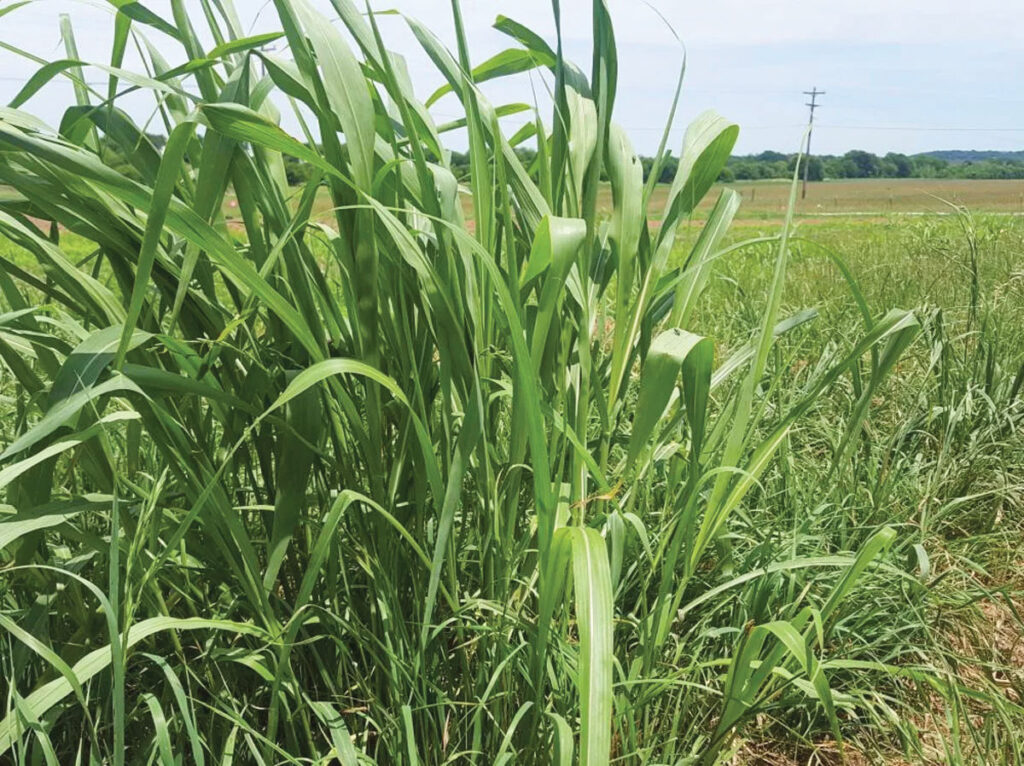We have had a major drought and now it has rained. I have had a lot of calls about Johnsongrass and its toxicity. Normally, when Johnsongrass is knee-high it is alright and not a problem. But, if you have heavily fertilized the field, we have had a drought and then rain, this young fast-growing Johnsongrass is very toxic.
Also, Johnson grass can have two different toxicities, prussic acid (or cyanide) and/or nitrite. Mostly what we see in the Ozarks is the prussic acid form. Nitrite can give you a little extra time to treat before it can kill within 0.5 to 4 hours after ingestion. Prussic acid or cyanide does not give you as much time, normally only 0.5 to 2 hours.
Now, if you can draw a blood sample from a vein, nitrite poisoning will cause the blood to look like Hersey’s chocolate syrup, whereas prussic acid or cyanide will cause the blood to look bright apple red. This is best seen by putting a small amount on a white paper towel. It does help to know what kind of toxicity you are treating.
If we do treat and save the cow, we will have at least a 6-month slaughter with drawl on them. Normally, a laboratory stain is used intravenously. This will cause all tissue, urine, milk, saliva and all bodily secretions to be blue. We do not want to eat this, so we must have an extended slaughter withdrawal.
When dealing with Johnsongrass and toxicity, it is best to turn in a scrub cow or steer with a full belly and watch them for about two hours to a half a day before turning in your herd. And I still recommend not turning your herd in without full bellies.
Then at least, we will have a dissolution factor. All toxicities are dose-related, so dilute it out and maybe it won’t bother them.
Now, I have been in on 75 steers that were fed cane hay and were dropping like flies due to nitrite poisoning. If we waited and did not fight them and let them drop on their own, then intravenously administered the antidote, they would live even if we got it in just before they took their last breath. They ended up losing only two, 700-pound steers, and everyone we treated lived.
Please, be careful and only turn cattle in on Johnson grass with full bellies.
Dr. Tim E. O’Neill, DVM, owns Country Veterinary Service in Farmington, Ark. To contact Tim go to ozarksfn.com and click on ‘Contact Us.’






